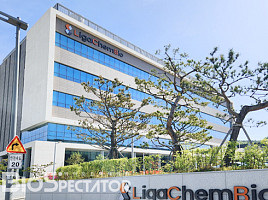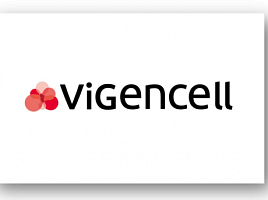기사본문
Lunit and AstraZeneca Announce First Results on AI-Driven EGFR Lung Cancer Validation
입력 2025-03-27 14:18 수정 2025-03-27 14:18
by Sungmin Kim

Lunit announced on the 27th that it will present a deep learning study on Epidermal Growth Factor Receptor (EGFR) mutation prediction in patients with non-small cell lung cancer (NSCLC) at the upcoming American Association for Cancer Research (AACR) Annual Meeting 2025, held from April 25 to 30 in Chicago, Illinois.
The study, which highlights the development and validation of the Lunit SCOPE Genotype Predictor, an AI-powered deep learning model capable of predicting EGFR mutations directly from hematoxylin and eosin (H&E)-stained tissue samples in NSCLC patients, will be presented in collaboration with AstraZeneca (LSE/STO/Nasdaq: AZN).
EGFR mutation testing plays a crucial role in determining the best course of treatment for patients with NSCLC, yet many patients remain untested due to logistical and resource constraints, despite guideline recommendations. Existing AI models designed to predict mutations from pathology images have faced limitations in real-world clinical applications due to limited training data and lack of validation. Lunit and AstraZeneca’s collaborative study leveraged the largest and most diverse training dataset to date, consisting of more than 12,000 pathology slides (>4,500 EGFR-mutated and >7,500 wild-type) from NSCLC patients across multiple countries, including the US, China, and South Korea, to further develop and validate Lunit’s model.
The AI model’s performance remained consistent across key clinical variables including specimen types, EGFR mutation subtypes, slide scanners, and scan magnifications, reinforcing its potential for real-world deployment in diverse clinical environments.
The collaboration focuses on the development of the Lunit SCOPE Genotype Predictor, an AI-driven tool designed to rapidly and cost-effectively predict NSCLC driver mutations from H&E-stained tissue samples.
“This study is a testament to the real-world potential of AI in precision oncology,” said Brandon Suh, CEO of Lunit. “By leveraging Lunit AI, we have demonstrated that routine pathology slides can serve as a powerful tool to predict EGFR mutations with high accuracy. This could help clinicians prioritize molecular testing for NSCLC patients, ensuring that patients receive targeted therapy without unnecessary delays. We are excited to showcase this breakthrough at AACR 2025, reinforcing our commitment to advancing AI-driven precision oncology in collaboration with AstraZeneca.”
관련기사
- 루닛, 로슈와 'AI 바이오마커' 티쎈트릭 3상 검증 "공개"
- 루닛, 아스트라제네카와 'AI' EGFR 폐암 검증 "첫 발표"
- AstraZeneca Jumps into Lunit's AI Pathology Technology for EGFR Mutation Dete...
- Lunit Joins Roche's Digital Pathology to Advance Cancer Biomarker Testing
- Lunit’s Chief Medical Officer Unveils ‘AI Biomarker’: The Four Key Needs of P...







